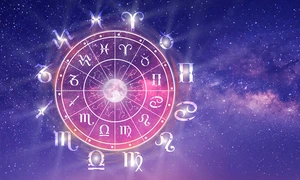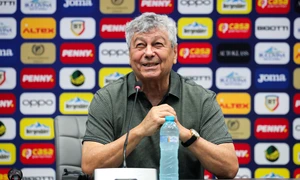Csaba Székely - Chestionarul lui Proust

În timp ce guvernul britanic ar pregăti o campanie pentru români şi bulgari, menită să îi ţină pe aceştia departe de Regatul Unit, cu sloganul “Vă rugăm, nu veniţi în Marea Britanie. Plouă, joburile sînt puţine şi prost plătite" (cel puţin aşa susţine The Guardian), dramaturgul mureşean Csaba Székely a primit la Londra, în 27 ianuarie, Premiul Imison Society of Authors din Marea Britanie pentru scenariul radiofonic Do You Like Banana, Comrades?.
Concurînd alături de doi britanici, Paul Sellar şi Nick Payne, Csaba Székely este primul nebritanic nominalizat la acest premiu (şi desigur, primul care l-a cîştigat). Pentru el, sloganul (presupus al) guvernului londonez n-a funcţionat, a preferat mai vechea zicală veni, vidi, vici.
Do You Like Banana, Comrades? a fost declarată cea mai bună piesă europeană în 2009 de BBC. Radioul britanic a produs spectacolul în acelaşi an, cu mare succes (a fost ales play of the week şi difuzat de BBC timp de o săptămînă). Astfel, Premiul Imision a fost urmarea acestei serii de succese. Juriul şi-a motivat decizia caracterizînd textul drept „a deft, witty, and often very moving picture of life under a totalitarian regime”.
Csaba Székely a primit premiul de la scriitorul Andrew Davies, a ţinut un discurs („dar am uitat să mulţumesc juriului”), a fost felicitat de toată lumea („şi cei de la garderobă m-au felicitat”) şi a cunoscut mulţi actori, regizori, producători („m-a mirat faptul că au fost foarte mulţi care cunoşteau piesa”).
Succesul britanic vine în urma celui din România (zona de expresie maghiară) şi din Ungaria. Textele sale (Flori de mină şi Beznă de mină) au fost montate la Tg. Mureş (supratitrate în limba română) şi Budapesta.
Chestionarul lui Proust
1. Principala mea trăsătură
Îndărătnicia.
2. Calitatea pe care doresc să o întîlnesc la un bărbat
Înțelepciunea.
3. Calitatea pe care o prefer la o femeie
Răbdarea față de mine.
4. Ce preţuiesc mai mult la prietenii mei
Franchețea.
5. Principalul meu defect
Am prea multe pretenții.
6. Îndeletnicirea mea preferată
Scrisul.
7. Fericirea pe care mi-o visez
Să fiu iubit, să iubesc, să pot scrie cînd vreau și să fiu sănătos până la adînci bătrâneți.
8. Care ar fi pentru mine cea mai mare nenorocire
Nu îndrăznesc s-o spun, dar e legată de familie.
9. Locul unde aş vrea să trăiesc
Unde trăiesc acum. Ador Ardealul.
10. Culoarea mea preferată
Portocaliu, roșu închis.
11. Floarea care-mi place
Vioreaua.
12. Pasărea mea preferată
Cinteza.
13. Prozatorii mei preferaţi
Franz Kafka, Feodor Dostoievski, Edgar Allan Poe, Arthur Conan Doyle, Albert Camus, Jorge Luis Borges, Friedrich Dürrenmatt, Thomas Bernhard, Kjell Askildsen, Cormac McCarthy, István Örkény.
14. Poeţii mei preferaţi
William Shakespeare, Francois Villon, William Blake, Charles Bukowski, Nichita Stănescu, Frigyes Karinthy, Dezső Tandori, Lajos Parti Nagy.
15. Eroii mei preferaţi din literatură
Hamlet, Ochi-de-Șoim, Oskar Matzerath, Sherlock Holmes, Philip Marlowe.
16. Eroinele mele preferate din literatură
Moll Flanders, Lady Macbeth, Irene Adler, Jane Marple.
17. Compozitorii mei preferaţi
Arcangelo Corelli și Antonio Vivaldi interpretați de John Eliot Gardiner, apoi W. A. Mozart.
18. Pictorii mei preferaţi
Hieronymus Bosch, Caravaggio, Joan Miró, René Magritte, Francis Bacon.
19. Eroii mei preferaţi din viaţa reală
Părinții mei, Gábor Bethlen, Carol-Eduard Novák și toți cei care își folosesc talentul pentru a îmbogăți comunitatea în care trăiesc.
20. Ce urăsc cel mai mult
Ura.
21. Calitatea pe care aş vrea s-o am din naştere
Stăruința.
22. Cum aş vrea să mor
Fără durere, fără regrete.
23. Greşelile ce-mi inspiră cea mai mare indulgenţă
Cele care nu fac rău altora.
24. Deviza mea
Lăsați-mă să scriu!
Csaba SZÉKELY
Data nașterii: 31. 07. 1981.
Locul nașterii: Tîrgu Mureș, România
Piese publicate:
Bányavirág (Flori de mină) – Revista Literară „Látó”
Bányavakság (Beznă de mină) – Revista Teatrală „Játéktér”
Bányavíz (Apă de mină) - Revista Literară „Látó”
Bányavidék – drámatrilógia (Ținutul minier – o trilogie): Editira Magvető, Budapesta, 2013.
Spectacole:
Bányavakság (Beznă de mină)
Studioul Yorick – Teatrul Național Târgu Mureş, 2012.
Teatrul Szkéné, Budapesta, 2012.
Bányavirág (Flori de mină)
Teatrul Pinceszínház, Budapesta, 2012.
Studioul Yorick – Teatrul Național Târgu Mureş, 2011.
Do You Like Banana, Comrades?
(teatru radiofonic)
BBC 4, Marea Britanie, 2011.
regizor: Marion Nancarrow
Urmează:
Bányavirág (Flori de mină)
premieră: Teatrul Național Budapesta, 2013.
Bányavíz (Apă de mină)
premieră: Teatrul Örkény István, Budapesta, 2013.
Premii:
2013 Premiul Imison (pentru „Do You Like Banana, Comrades?”) – Uniunea Scriitorilor din Marea Britanie (Society of Authors)
2013 Premiul pentru Cultura Contemporană Maghiară din Transilvania
2012 Piesa anului (pentru Flori de mină) – Asociația Criticilor de Teatru din Ungaria
2012 Premiul I. (pentru Apă de mină) – Concurs organizat de Teatrul Örkény István din Budapesta
2011 Premiul de excelență – Revista literară „Látó”
2011 Premiul Szép Ernő – Guvernul Ungariei împreună cu asociații de scriitori și dramaturgi
2011 Premiul Vilmos – Asociația Dramaturgilor din Ungaria
2009 Cea mai bună piesă europeană (pentru „Do You Like Banana, Comrades?”) – BBC
***
Csaba Székely - Do You Like Banana, Comrades?
SCENE 1 EXT. PARK (OCCASIONALLY WE HEAR BIRDS, WIND BLOWING ETC)
1 ROBERT: The only thing that annoyed me as a child was that my brother wanted to kill me all the time. In fact his laughter was quite annoying too. He never laughed like ha-ha-ha, you know, like normal people.
2 DANI: Weeh-weeh-weeh!
3 ROBERT: That’s how he laughed. Yeah.
We used to live in a three-roomed flat, in the new district. The flat was given to my father by Comrade Ceauşescu. Well, by the town government actually, but the town belonged to Comrade Ceauşescu. Everything belonged to Comrade Ceauşescu, so if you wanted something…. Yeah. So, we lived in the new district, in a huge blockhouse. We could have moved downtown, into an old fancy apartment, but a Kraut family lived there. And they would have been evicted if we had accepted the offer. So, my father chose the blockhouse. Then he evicted the Kraut family, and moved three working class families in there. Because he knew that if he had chosen the old fancy apartment, he might not have gotten a car. My father was a wise man.
Hence we got a nice Lada car. Soviet. And a three-roomed flat with a nice panorama. An important person like my father deserved these. Yeah.
1 ROBERT: Later, the children’s room had to be divided in two, because sometimes my brother wanted to kill me while I was asleep, so he needed a room of his own where my father could lock him in.
Then there was the bedroom, but we weren’t allowed to enter, because there was my mother who was crying.
WE HEAR HER CRY
Then there was the living room, but we weren’t allowed to do anything there because my father always shouted at me.
INT. RADIO IN THE BACKGROUND
2 TIBOR: Back to your room! You’re annoying your mother!
EXT. PARK
3 ROBERT: My mother wasn’t even there, she was in the bedroom, crying. My father used to sit on his brown leather sofa, listening to football matches on the radio. We had a nice Sokol radio. Soviet. He was also watching TV, at least when there was any broadcast, or reading his documents. Or making phone calls, sometimes with both telephones at the same time. And sometimes, while making phone conversations with both telephones at the same time, he was shouting at me.
INT. METAL PIECES CLASHING
4 TIBOR: Stop throwing that bicycle around and go back to your room! You’re annoying your mother.
1 ROBERT: Or…
INT. DOG YOWLING
2 TIBOR: Stop kicking that dog and go back to your room! You’re annoying your mother!
EXT. PARK
3 ROBERT: Yeah, we used to have a dog, too. Until it went into my brother’s room.
So my father sat on his brown leather sofa through all my childhood. Except for three special moments. When Dinamo FC battered Steaua FC. Then, he could be seen in the middle of the room, in the air, singing the traditional song…
INT. RADIO IN THE BACKGROUND
4 TIBOR: Steaua’s a waaankeeer, Diiinamo ruuules…
EXT. PARK
5 ROBERT: Secondly, when my brother came out of his room and had to be driven back. My father always tried to be nice at first.
INT. RADIO IN THE BACKGROUND
6 TIBOR: (SHOUTING) Stop chasing your brother with that damn knife and go back to your bloody room!
7 DANI: Weeh-weeh-weeh!
EXT. PARK
1 ROBERT: But that didn’t work. Only my father knew how to drive my brother back; his left ear had to be twisted at a certain angle, and thus he became a kind boy. Yeah. He killed me with his kindness.
There was a third occasion when my father wasn’t sitting on his brown leather sofa, and this was dinnertime. When we had dinner even my mother came out of the bedroom and stopped crying.
Well, sometimes she was crying at the dinner table, but she said it was from hot pepper, and the hiccups.
My mother hated hot pepper, I never saw her tasting it, I think she never tasted it in her life. Yeah.
And I saw her with hiccups only once: when the repairman who was writing reports on my father opened the bathroom door on her.







































